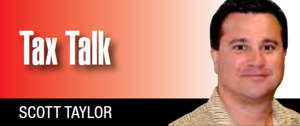Looking through past columns, I’ve written about driver services and self-employed drivers four times in the past 12 years. This is the second-to-last column I’ll write about it, and, because this is a two-parter, next month will be the last.
Two branches of government have issued opinions, facts, and policies that basically eliminate the advantages of the so-called Driver Inc. arrangement for the driver. Canada Revenue Agency’s (CRA) statements get the most publicity (the agency’s website has an entire section devoted to it) but the Employment and Social Development Canada (ESDC) stance is equally important.
I’ll get to that next month. This column deals with the CRA position from the driver’s point of view.
Meet the PSB
When CRA determines whether someone is an employee or self-employed, it looks at the level of control the payer has over the worker, including: does the worker provide his own tools and equipment?; does the payer choose and control the method and amount of pay?; does the payer decide what the worker will do?; can the worker subcontract the work or hire assistants?; what is the worker‘s opportunity for profit or loss?; does the worker require permission to work for others?; is the work performed an integral part of the business?; and is the work performed continuous?
|
The PSB designation drastically changes the two most important elements of being incorporated: one, your corporation is not entitled to deduct any expenses; and two, your corporate tax rate is much higher on any net income it shows.
|
We all know the answers.
No, you do not own the truck. Yes, the carrier controls everything about your pay. Yes, the carrier tells you what to do. No, you cannot hire another driver to take your place. No, you have no opportunity for a loss. Maybe you can work elsewhere. Yes, your work is integral. And yes, the work is continuous. A self-employed person typically does not work at only one place year after year.
There’s a third classification for workers: the incorporated Personal Services Business, or PSB. PSBs are nothing new. They’re common in construction, upper management, and consulting. For truck drivers, CRA has stated that the PSB designation must be used when the elements of an employee-employer relationship exist but you want to be independent.
Fewer deductions
The PSB designation drastically changes the two most important elements of being incorporated: one, your corporation is not entitled to deduct any expenses; and two, your corporate tax rate is much higher on any net income it shows.
Remember how your carrier “sold” you on the idea of incorporating because you were going to save on income tax? Well, a PSB is only allowed to deduct salaries or wages and related benefits it pays to employees (you are an employee of your PSB). It can’t deduct the cost of cell phones, meals, office supplies, travel, service vehicles, and office-inhome expenses. They are all specifically excluded.
Without expenses to deduct, there is no tax savings.
Higher tax rates
PSBs are also taxed at a higher tax rate than other small businesses.
In the past, if you showed a corporate income because you left money (savings) in the corporate bank account, or paid yourself or spouse a dividend instead of wages, the tax rate (in Ontario) was 13.5%. Now CRA says that same corporate income is taxed at 33%, although you should confirm this percentage with your accountant. As an employee in Ontario, depending on what tax bracket you’re in, you will pay 24% to 29% personal income tax.
Without a cheaper tax rate there is no tax savings.
No change for carriers
So, let’s make this clear. This rule change does not affect the carrier at all. Your PSB does work and gets paid and the carrier claims that expense as always.
It’s you that CRA has changed the rules on.
It’s you that must properly file your corporate tax return and check all the right boxes so your business description is correct and ensure your taxes paid is correct.
So, you came into this independent driver relationship knowing you were giving up EI and other employment benefits, plus taking on extra work of filing GST/HST and corporate tax returns, all because you were going to deduct expenses and save on income tax. Without those tax savings, why are you an incorporated driver?
Scott Taylor is vice-president of TFS Group, providing accounting, bookkeeping, tax return preparation, and other business services for owner/operators.
Learn more at www.tfsgroup.com or call 800-461-5970.
